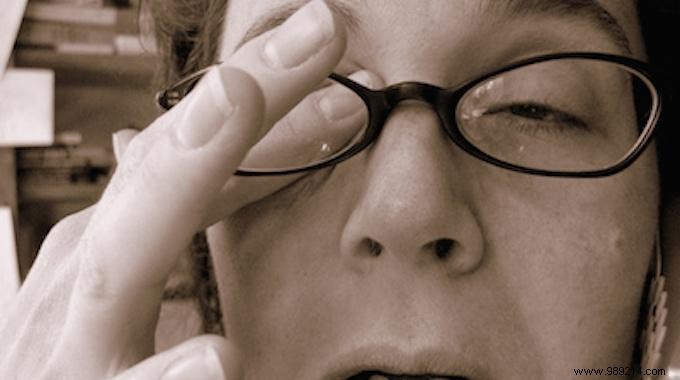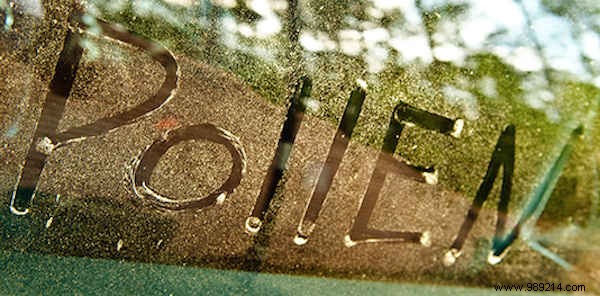
Tired of being tired from hay fever?
Between the runny nose, itchy eyes and difficulty breathing, it's no wonder!
Fortunately, there are simple actions to fight against pollen allergy. It is enough to know them and put them into practice to reduce the symptoms.
Here are 10 tips for effective protection against allergens:

To protect your eyes from pollen, nothing better than glasses. If you already wear glasses, you don't have to do anything.
For others, remember to wear sunglasses.
In both cases, with glasses on your nose, the pollen comes into less contact with your eyes.
As a result, you reduce the risk of conjunctivitis and red, itchy and itchy eyes.
If you are going for a walk outside, try to wear a hat or a cap.
Why ? Because it prevents pollen from settling in your hair.
As a result, you bring less pollen home and to your bed at night.
Pollen settles on all everyday objects.
So the more things you touch throughout the day, the more likely you are that pollen will land on your hands.
To remedy this, remember to wash your hands several times a day.
Thus, you decrease the chances of touching your eyes or mouth with hands full of pollen.
With the good weather, we all want to dry our clothes outside.
Unfortunately, when there are allergen spikes in the air, that's not necessarily a good solution.
Why ? Because by leaving the laundry to dry outside, the pollen will cling to the clothes. And when you put them on, you can be sure to see your symptoms get worse.
If possible, it is better to dry clothes indoors, because there is less pollen inside than outside.
This prevents pollen from clinging to your clothes.
Pollen enters your home through the windows and settles all over the house.
To make it disappear, consider vacuuming at least twice a week.
Also remember to dust. These 2 gestures will limit the number of allergens present in your home.
The bed is a nest for dust mites and pollen. Every night, when going to bed, we bring some back into bed.
To avoid waking up with a stuffy nose and itchy eyes, consider washing your sheets more often.
No need to put as much detergent as usual. What is important is the washing that will remove the pollen deposited on the bed linen.
Throughout the day, pollen accumulates in the hair and settles on the pillow in the evening at bedtime.
To avoid this vicious circle, consider rinsing your hair at night before going to bed.
No need to shampoo, here it's rinsing with water that is important.
This way you will have fewer unpleasant symptoms when you get up in the morning.
During gardening, you are particularly exposed to pollen.
To protect your nose, mouth and bronchial tubes, remember to wear a mask.
This will limit the amount of pollen you breathe in and lessen the symptoms.
When you come home from a walk or in the evening after work, remember to change your clothes.
Why ? Because clothes carry pollen and bring it home.
If you don't change, you'll put them all over the house. The best solution is to change on the landing.
Obviously this is not possible for everyone, but at least remember to leave your shoes outside.
The face is the most susceptible part of the body to allergies.
It is for this reason that the eyes, nose and mouth need to be washed regularly.
It could not be easier. Over a sink, let the water run over your hands and run them over your face several times.
Don't forget to wash your eyebrows well, because pollen also clings to them.
No need to put soap, water is enough.
Depending on the person's sensitivity, pollen allergy causes more or less serious symptoms.
It is useful to know these different symptoms to detect a pollen allergy which can occur even in people who have never had allergies before:
- stuffy nose and profusely runny nose.
- itchy, watery and itchy eyes.
- difficulty in breathing, asthma and shortness of breath.
- severe fatigue for no apparent reason.
- headache, lack of concentration and attention.
- disturbed sleep due to runny nose and itchy eyes.
- skin manifestations and aggravation of certain eczemas.
If you have one or more of these symptoms, consider going to the National Aerobiological Surveillance Network website to see if your area is affected or not.